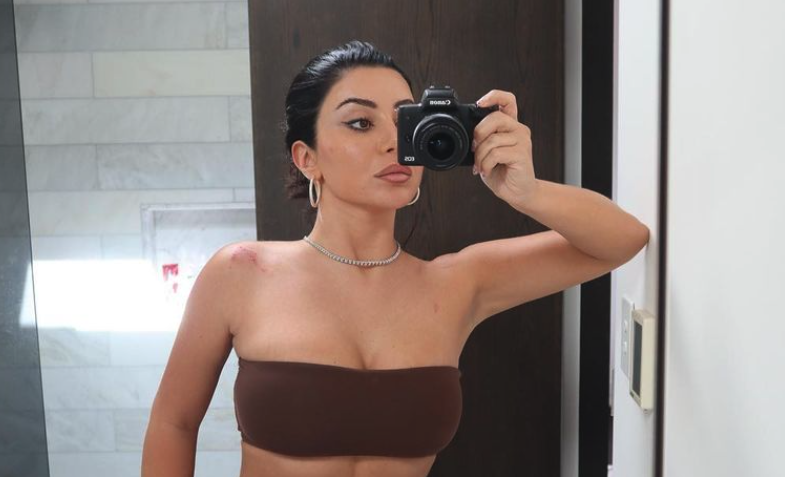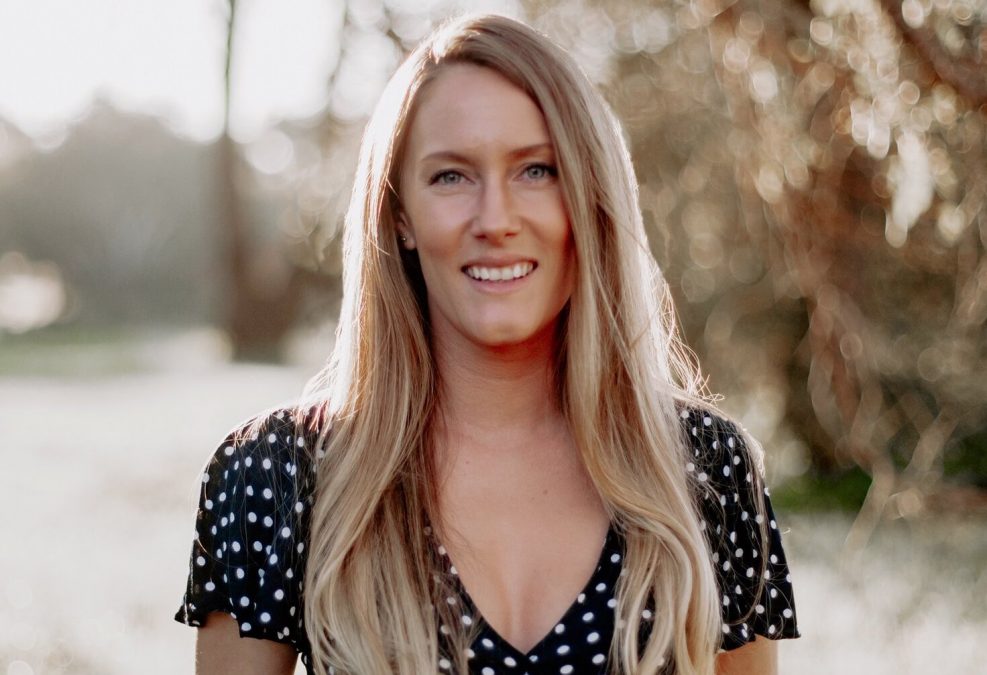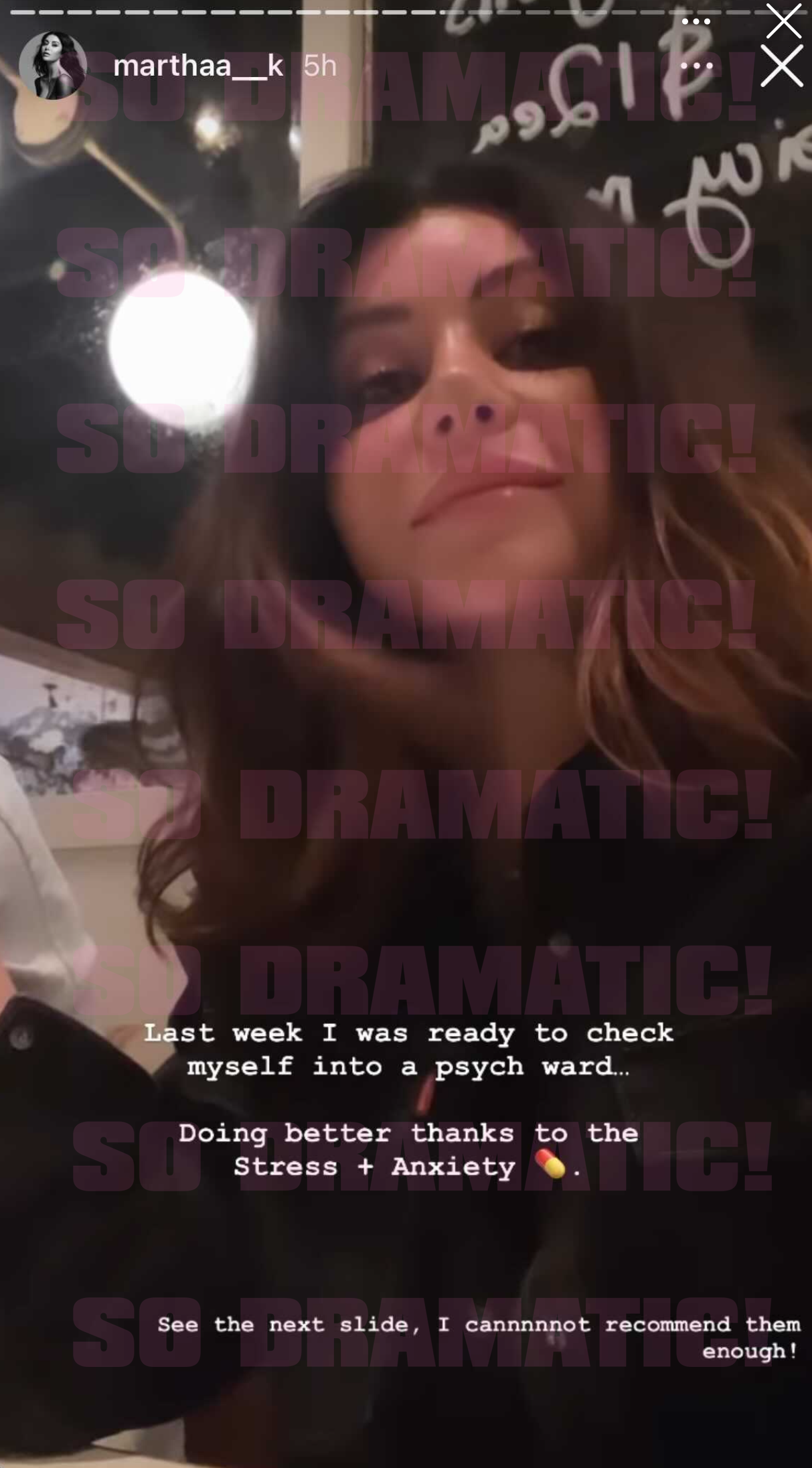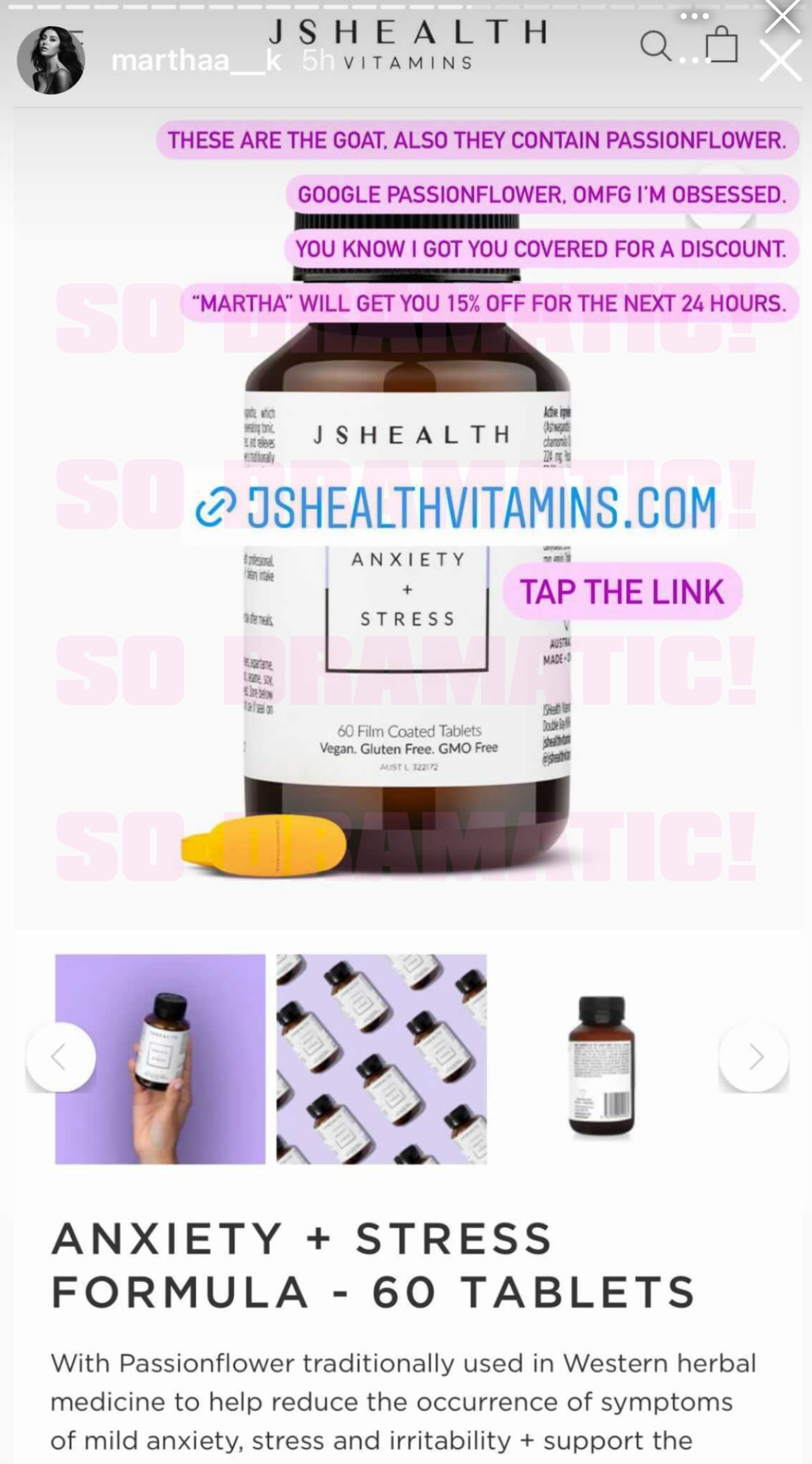A registered psychologist has weighed in on the damaging implications of influencer Martha Kalifatidis‘ resurfaced vitamin promotion, in which she claimed the product stopped her from “[checking herself] into a psych ward”.
**Content Warning: This article discusses mental health and may be distressing to some readers.
As exclusively reported by So Dramatic!, the former Married at First Sight star was called out by one of her followers for sharing a “disturbing” and “unethical” post in which she advertised JS Health vitamins.
The Instagram Story, which is believed to have been posted in early March, showed the 33-year-old spruiking the brand’s “Stress + Anxiety” tablets.

However, her endorsement came with the implication that these vitamins can be used as a substitute for mental health support.
“Last week I was ready to check myself into a psych ward,” she wrote. “Doing better thanks to the Stress + Anxiety [vitamins].”
Now, registered psychologist and the owner of Toward Wellbeing, Rachel Tomlinson, has weighed in on the implications of sharing such advice on social media.
SO DRAMATIC!: What are your thoughts on somebody promoting a product in a way that suggests it is a substitute for serious mental health support?
RACHEL: There are many things that can support positive mental health and wellbeing.
They can include things like; a generally healthy diet/lifestyle, therapy and/or medication. Mental health and treatment are unique to a person and should take into account their history, diagnosis, current and past treatments, allergies [and] preferences.

This is the trouble with sweeping statements about “cures”, they aren’t targeted or personalised which is very concerning when a large group receive this generalised or incorrect information and potentially try it, or forego evidence-based and research-based treatment discussed with a treating professional.
It’s not that there is anything wrong with people making their own individual choices about treatments for mental health, but the issue is when this information is being recommended by someone who isn’t a relevant and appropriately qualified health professional.
What are the damaging effects of this post? Does it detract from impressionable consumers seeking proper mental health support (i.e inpatient care, diagnosis, medication)?
The challenge is that people are looking for advice and guidance from people they trust.
We need this information to be high quality and delivered by an appropriately skilled or qualified person who is sharing evidence-based and well-researched treatments tailored to the individual they are working with.
This kind of tailoring isn’t possible or appropriate when it’s coming through social media from someone unqualified to pass along such recommendations to a wide range of people.


Even a post or content written by a registered health professional should still not be recommending personal treatment or giving individual advice as that is outside the realms of safe treatment and because social media is so visible it couldn’t possibly be tailored and therefore runs the risk of harm.
It can be dangerous when people who have the trust of their followers make recommendations outside of their “wheelhouse” and skill set. In addition, breaking down or simplifying mental health conditions or diagnoses as being cured by vitamins alone can be damaging to people who need genuine help.
It can devalue and invalidate the lived experience of a person with mental health issues, simplifying recovery as it doesn’t acknowledge the lifelong struggles that many people face. It also doesn’t show the strength it takes for people to reach out and access support, or the work taken to break habits or built up strategies/skills to address their mental health.
It also reduces the opportunity for people to explore and work through triggers or situations that impact their wellbeing to support their recovery now and into the future.
Are there cases where certain vitamins can combat mental health issues and/or relieve stress and anxiety?
As a psychologist, I couldn’t comment on the use of medications or vitamins and their success levels as this is something that an individual should discuss with their doctor.
People have unique diagnoses and treatment needs based on their history, other medications they might be taking (to ensure they don’t interfere), other medical conditions, and preferences.
It is hard to give a blanket rule for what might work, as one type of treatment could work for one person, but not another person who experiences the same symptoms which is why social media posts offering treatment, diagnosis and cure are so risky.
Research does indicate that overall health and lifestyle choices can influence mental health and wellbeing, but all discussions about supplements or treatments being ingested should be prescribed or discussed with a GP for the reasons I named above.
Do you think influencers should be allowed to promote products that pertain to people’s health?
I think that there are absolutely ways that influencers can share their insights into their own journeys, which can provide support and encouragement to their followers without recommending products or creating content that aims to diagnose or treat other people’s conditions.
The line is so slippery which means many will struggle with getting it right and there is some information that most influencers are unqualified to dispense, unless, of course, they are a registered and relevantly qualified health professional. Even then they have rules to adhere to about what they can recommend.
It’s important to get it right as it’s a fine line to balance because health information when delivered inappropriately or by the wrong person can have very detrimental impacts. It’s also about being very clear about what research-backed products or strategies can enhance health or wellbeing without touting [them] as a cure or treatment.
So Dramatic! has reached out to both JS Heath and Martha for comment.
If you or anyone you know is struggling and needs support, call Kids Helpline on 1800 55 1800 or Lifeline on 13 11 14, both of which provide trained counsellors you can talk with 24/7. You can also speak with someone confidentially at Headspace by calling 1800 650 890 or chat online here. If you are in immediate danger, call 000.
Want even more goss? Listen to episode 176 of the So Dramatic! podcast with Megan Pustetto below!
Know something that we don’t? Spill the tea here!
Get the tea first! Follow So Dramatic! on Instagram and tune in on Mondays to get your reality tea fix with the So Dramatic! podcast with Megan Pustetto.
